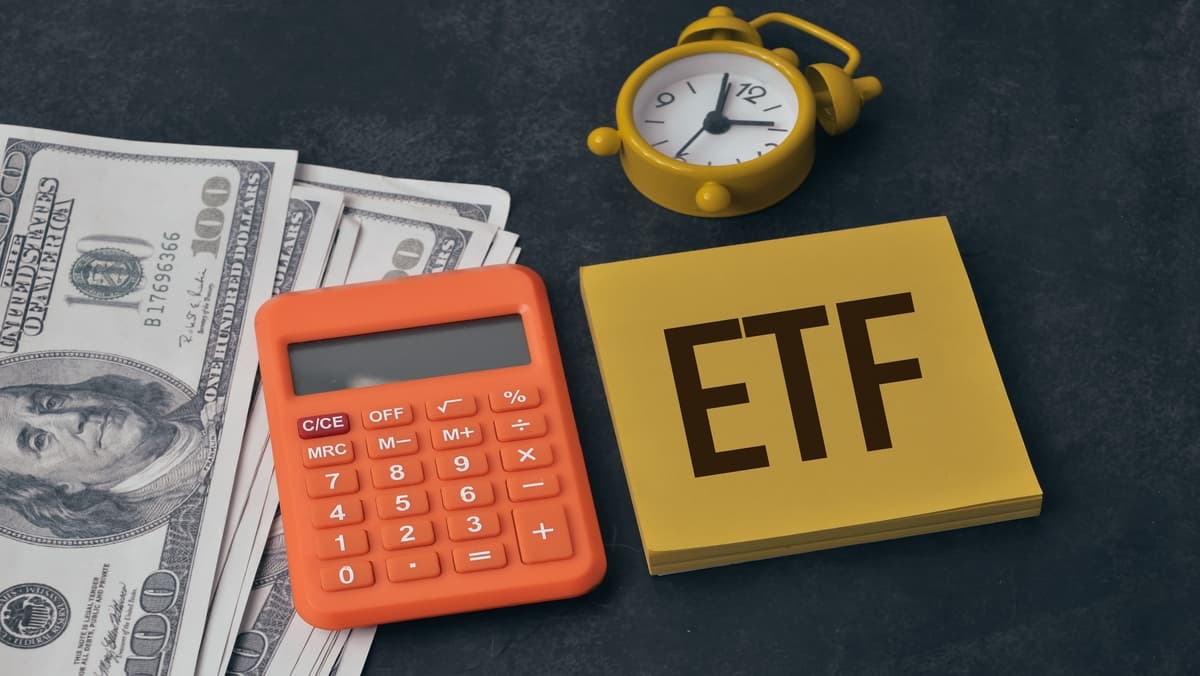Nearly 30 years ago, Warren Buffett introduced Berkshire Hathaway B stock to prevent money managers from attempting to split the stock of his high-priced conglomerate.
South Korean Brokerage Plans Leveraged ETF for Berkshire Hathaway
One of South Korea's largest retail brokerages is now planning to package Berkshire Hathaway's Class B shares into an exchange-traded fund (ETF) boosted by derivatives—another move that could potentially rile Warren Buffett.
Kiwoom Securities Co. has partnered with Milwaukee-based Tidal Investments to create an ETF aimed at delivering 200% of Berkshire's daily performance, according to a regulatory filing.
Single-stock ETFs like this have been gaining popularity in the fund industry, leveraging high-flying stocks like Nvidia and Tesla to magnify both potential returns and risks. In South Korea, brokerages such as Toss Securities and Mirae Asset Securities have been eager to tap into the growing demand for U.S. stocks as domestic markets remain sluggish.
“Traditionally, leveraged ETFs attract most of the interest and asset flows from more volatile stocks,” said Gavin Filmore, Chief Revenue Officer of Tidal, in an interview. “Berkshire is almost the opposite of that.”
Leveraged ETFs are typically designed for active traders looking to capitalize on short-term movements in a stock’s performance. However, these funds can stray off course over longer periods. The use of derivatives to amplify Berkshire's returns may not align with Buffett’s philosophy—he once referred to such instruments as "financial weapons of mass destruction."
Kiwoom's Leveraged Berkshire ETF May Displease Buffett
While Buffett's Berkshire Hathaway is a household name, it remains uncertain whether day traders will be interested in using a leveraged strategy on a relatively steady stock like this. Buffett, known for his long-term investment philosophy, often advises investors to hold stocks they are comfortable owning for years.
At 94, Buffett and his firm already have a strong following in South Korea. As of November 8, South Korean individual investors owned more than $800 million worth of Berkshire Class A and Class B shares, according to data from the Korea Securities Depository.
"Asian markets have a particular affinity for Berkshire," noted Matthew Palazola, an insurance analyst at Bloomberg Intelligence.
A representative from Kiwoom Securities declined to comment, and Berkshire’s representatives did not respond to inquiries.
Retail investors in South Korea have already shown strong interest in some of the largest leveraged ETFs listed in the U.S. For example, the Direxion Daily TSLA Bull 2X Shares ETF, which tracks Tesla, has attracted $225 million in investments from South Korean retail investors this year, bringing their total stake to $1.2 billion as of November 8, according to depository data.
Kiwoom's new ETF, known as Kick BRK 2X Long Daily Target, would be the first leveraged single-stock ETF for Berkshire in the U.S., though similar products already exist overseas. However, those funds have struggled to gain traction. For example, the Leverage Shares 2x Long Berkshire Hathaway ETP, which trades on several European exchanges, has only about $2.3 million in assets.
Kiwoom’s ETF will buy Berkshire Class B shares and issue its own shares to investors, potentially at a price much lower than the $467.36 per Class B share at Monday's market close. To enhance its exposure to Berkshire's daily returns, the ETF will enter into swap agreements with broker-dealers and trade listed options on Berkshire’s B shares.
This new Berkshire ETF would be a Kiwoom product managed by Tidal Investments in exchange for a share of the management fees.
The creation of a single-stock ETF for Berkshire shares is reminiscent of an earlier attempt on Wall Street that led Buffett to introduce the company’s Class B shares nearly three decades ago. At the time, Berkshire only had one class of stock priced above $30,000 per share, and ETFs were still in their infancy.
When considering shares, indices, forex (foreign exchange) and commodities for trading and price predictions, remember that trading CFDs involves a significant degree of risk and could result in capital loss.
Past performance is not indicative of any future results. This information is provided for informative purposes only and should not be construed to be investment advice.









